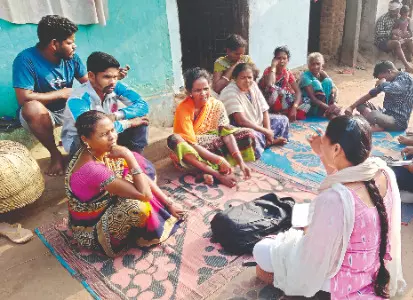Social and Solidarity Economy
As inequality deepens and climate anxieties mount, a new movement in economics — rooted in cooperation, ecology, and human creativity — seeks to redefine prosperity as something shared, not accumulated

Social and Solidarity economy refers to the need to radically re-configure our economic system away from simply growth, with its damage to both ecological systems and human ones (for example of what the anthropologist David Graeber charmingly called “Bullshit Jobs” – jobs that are monotonous, devoid of creativity or autonomy, repetitive, and have little or no social utility) towards economic practices that promote equity, social justice, ecology and a sense of meaningfulness for its participants. Recently, the Jindal School of Liberal Arts and Humanities (JSLH) introduced the first systematic course in India on the rapidly growing and increasingly influential subject of solidarity and social economy. The course, currently taught at the undergraduate level, considers such issues as how degrowth – the slowing of the economy – can be reconciled with maintaining living standards and employment, and not simply economic contraction; localism; the circular economy; eco-socialism and social ecology as possible alternative models, equitable North-South relations in terms of fair trade, aid and tariffs; the redefinition of work and the role of what UNESCO and UNDP call “creative industries” – the arts, crafts, and cultural enterprises in general. It critically and appreciatively examines the work of such scholars as Ernst Schumacher in his now classic book “Small is Beautiful”, Rutger Bregman and his idea of “Practical Utopias”, Tim Jackson in his influential work Prosperity Without Growth, and the work of the Gandhian economist J.C. Kumarappa and his concept of “The Economy of Permanence”.
Ideas such as these, exciting as they are, can easily exist simply as theories, unless they are rooted both in ethnographic realities and the study of actual alternative economies, whether anthropological or in the form of such manifestations, as cooperatives, worker-run enterprises, communes, de-growth initiatives, sharing and gift economies, local currencies, alternative transport systems, energy generation, agro-ecology, permaculture, craft economies, creative waste recycling systems, water management, food security, vernacular architecture, urban gardening, sustainable fisheries, and the ways in which these can be scaled up to become viable alternative systems. Such models and initiatives (of which a great many exist) also need to consider the ways in which they can promote the transition from destructive and unfair economic practices to fair and equitable ones, how to make the transition from fossil-fuel based economies to clean energy solutions, the re-design of cities both to make them more habitable and to reduce their carbon footprints, and the redesign of transport away from the reliance on the private car to accessible, cheap and safe public transport facilities.
Some solidarity economists argue, I think quite correctly, that a solidarity economy needs to be under-pinned by a solidarity society – one in which values of sharing, care, cooperation and tolerance are valued over profit, competition and an economy that allows excessive wealth to accumulate in the hands of a minority while leaving little for the minority, who actually make that wealth accumulation possible. Significant in this context is also the difficult question of consumption, and in particular the overconsumption of a few, the lack of social utility of much of what is consumed, and the waste generated by a “throw-away” society. A solidarity economy, as a result, requires substantial sociological analysis to make it possible, including investigation of such factors as family systems, local politics, already existing economic systems, and an awareness that all economic systems both embody values and are embedded in social systems.
The social and solidarity economy currently exists in a transition state. It is an aspiration to bring about an economy of equity, social justice, and ecological responsibility on the one hand. It is also the shaping of the tools to do this, including the formulation of an alternative sol idarity economics — a major but necessary theoretical task. At the same time, it represents a basket of initiatives, social and agricultural movements, experiments with economic possibilities, and social, architectural, and cultural initiatives. These are still mostly small in scope, but they hold the potential to challenge the dysfunctional aspects of our current economic system and patterns of “development” based on it. The aim is to work towards a genuinely sustainable form of practice that points us towards the kind of society in which we would really like to live.
Views expressed are personal. The writer is a Professor at Jindal School of Liberal Arts & Humanities, OP Jindal Global University



